Hypothalamus
Recent articles
Too much or too little brain synchrony may underlie autism subtypes
Functional connectivity differences in autism mouse models point to two subtypes that correspond to patterns seen in some people with the condition.

Too much or too little brain synchrony may underlie autism subtypes
Functional connectivity differences in autism mouse models point to two subtypes that correspond to patterns seen in some people with the condition.
Soft touch quells loneliness in mice
Touch modulates one of two dueling types of hypothalamic neurons that, thermostat-like, balance an animal’s drive for social interaction.
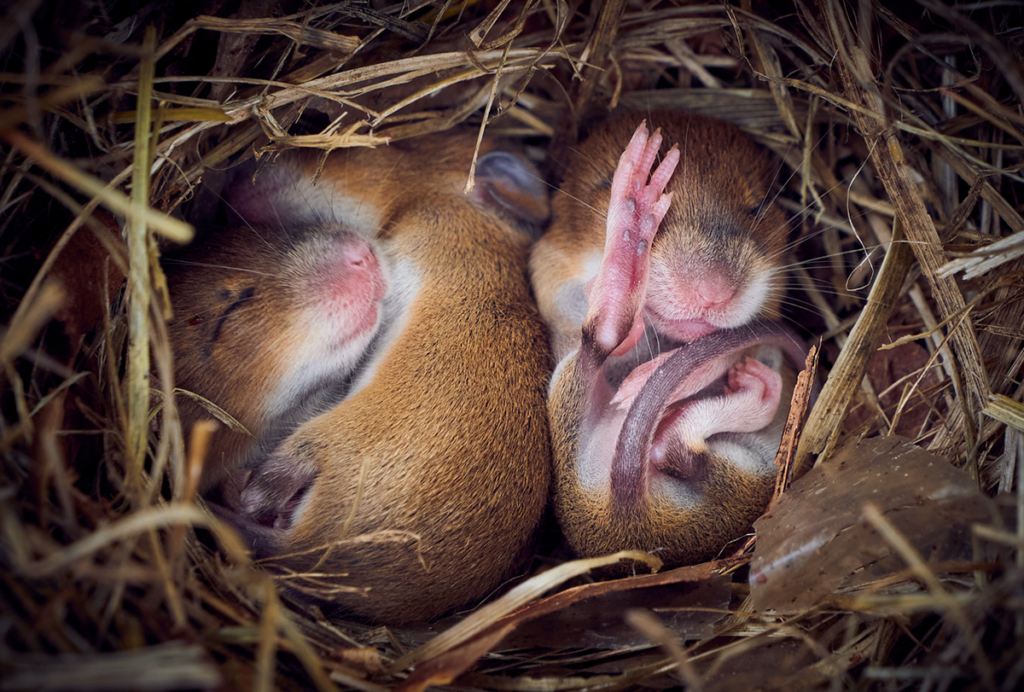
Soft touch quells loneliness in mice
Touch modulates one of two dueling types of hypothalamic neurons that, thermostat-like, balance an animal’s drive for social interaction.
Age-related brain changes in mice strike hypothalamus ‘hot spot’
Neuronal and non-neuronal cells throughout the brain also express genes—particularly those related to neuronal structure and immune function—differently in aged mice, according to a new atlas.
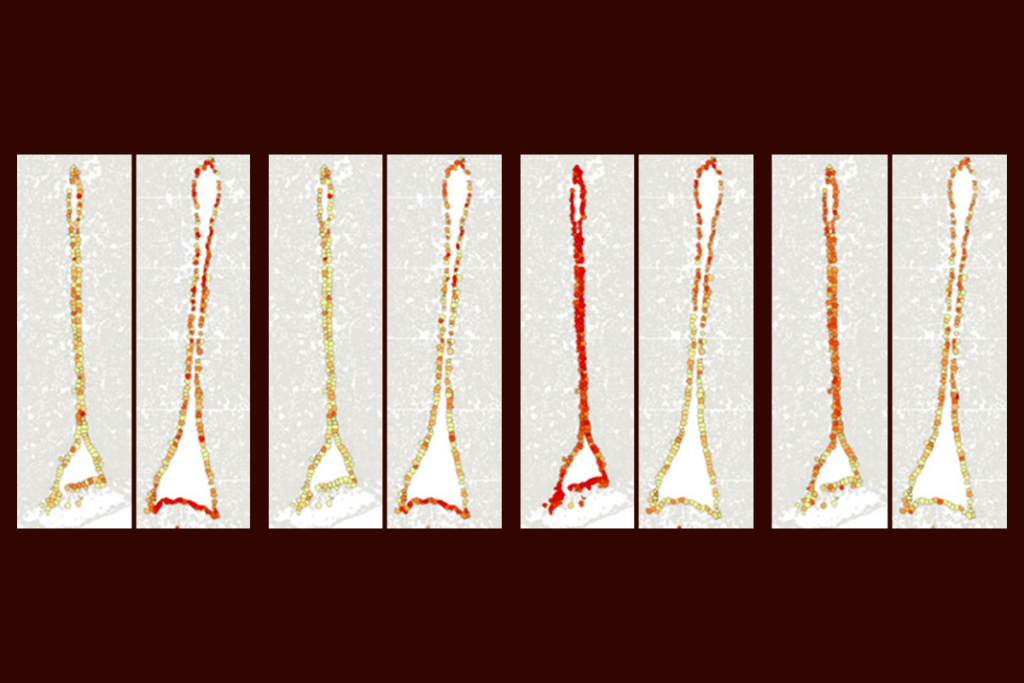
Age-related brain changes in mice strike hypothalamus ‘hot spot’
Neuronal and non-neuronal cells throughout the brain also express genes—particularly those related to neuronal structure and immune function—differently in aged mice, according to a new atlas.
To beat the heat, hypothalamus neurons in mice ramp up their firing
The uptick may help the rodents acclimate to temperature hikes and keep their cool.
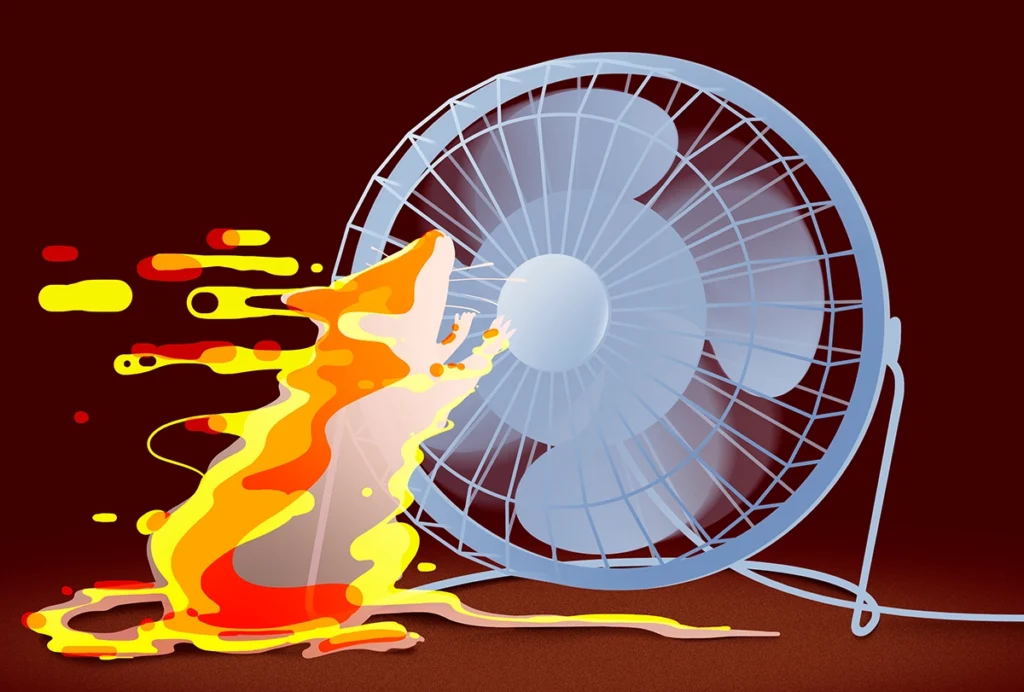
To beat the heat, hypothalamus neurons in mice ramp up their firing
The uptick may help the rodents acclimate to temperature hikes and keep their cool.
Novel neurons upend ‘yin-yang’ model of hunger, satiety in brain
The new type of leptin-sensitive cells curb hunger quickly—adding to an increasingly complex picture of brain circuits that control feeding behaviors.
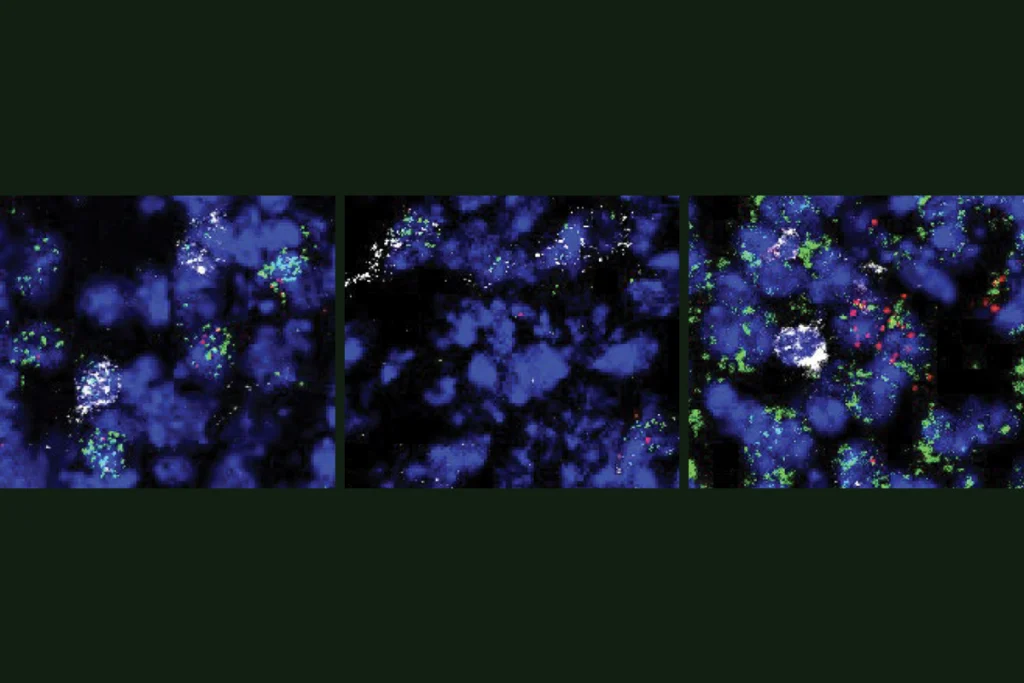
Novel neurons upend ‘yin-yang’ model of hunger, satiety in brain
The new type of leptin-sensitive cells curb hunger quickly—adding to an increasingly complex picture of brain circuits that control feeding behaviors.
Rousing a ‘new era’ of hibernation research
Novel applications of neuroscience tools have enabled researchers to uncover the neural controls of an extreme biological trait.
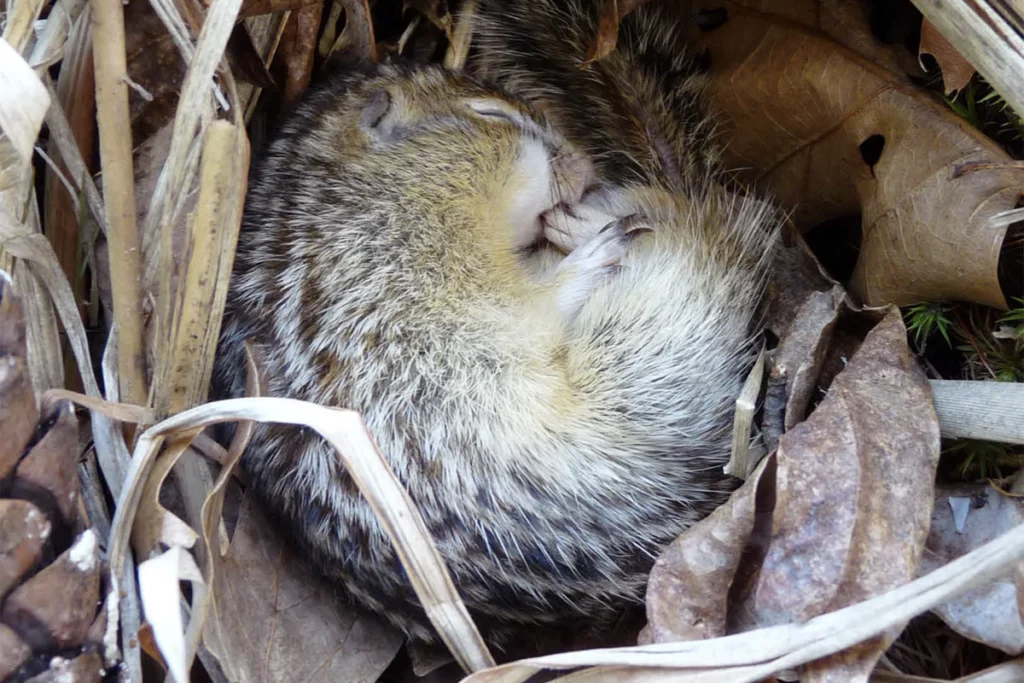
Rousing a ‘new era’ of hibernation research
Novel applications of neuroscience tools have enabled researchers to uncover the neural controls of an extreme biological trait.
Should I stay (and eat) or should I go? How the brain balances hunger with competing drives
Understanding the interplay among rival signals, such as pain, thirst and fear, could provide insights into anxiety and other neuropsychiatric conditions.
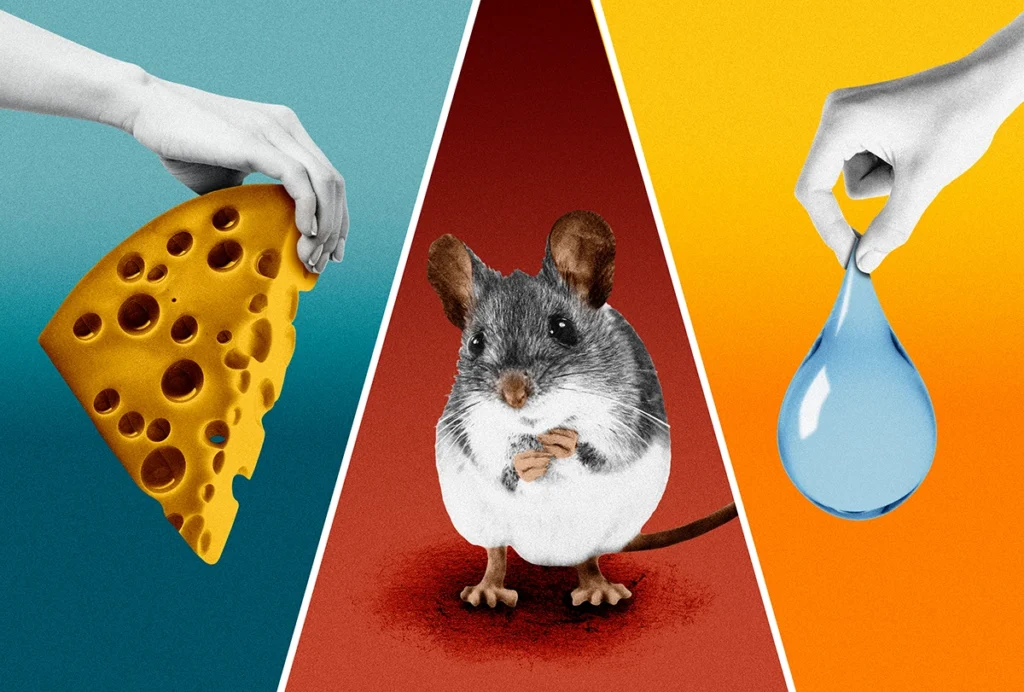
Should I stay (and eat) or should I go? How the brain balances hunger with competing drives
Understanding the interplay among rival signals, such as pain, thirst and fear, could provide insights into anxiety and other neuropsychiatric conditions.
Temperature tunes circadian timing in some desert mammals
Light has hogged all the attention in chronobiology research—but now, in camel, goat and mole rat experiments, temperature takes the lead.
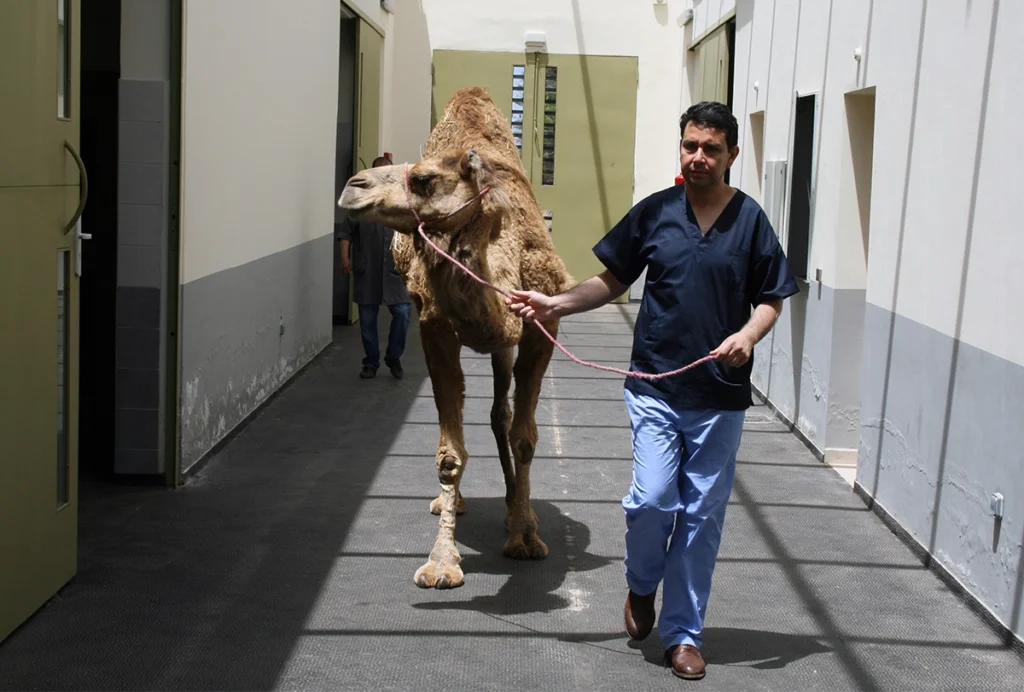
Temperature tunes circadian timing in some desert mammals
Light has hogged all the attention in chronobiology research—but now, in camel, goat and mole rat experiments, temperature takes the lead.
Newly found hypothalamus circuits shape bullying behaviors in mice
Activity in the tiny brain region helps submissive rodents learn to avoid aggressors, and aggressive mice to curb their attacks, according to two recent studies.
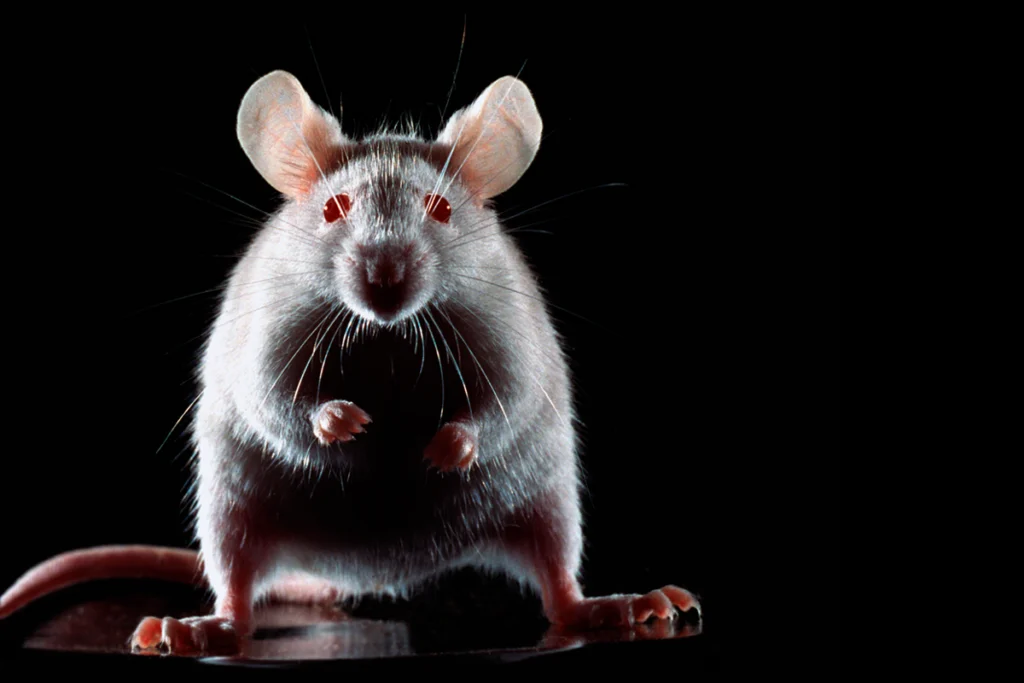
Newly found hypothalamus circuits shape bullying behaviors in mice
Activity in the tiny brain region helps submissive rodents learn to avoid aggressors, and aggressive mice to curb their attacks, according to two recent studies.
Gut microbes shape social behavior in autism mouse model
Treating mice missing the autism-linked gene CNTNAP2 with a strain of gut bacteria makes them more social but no less hyperactive.
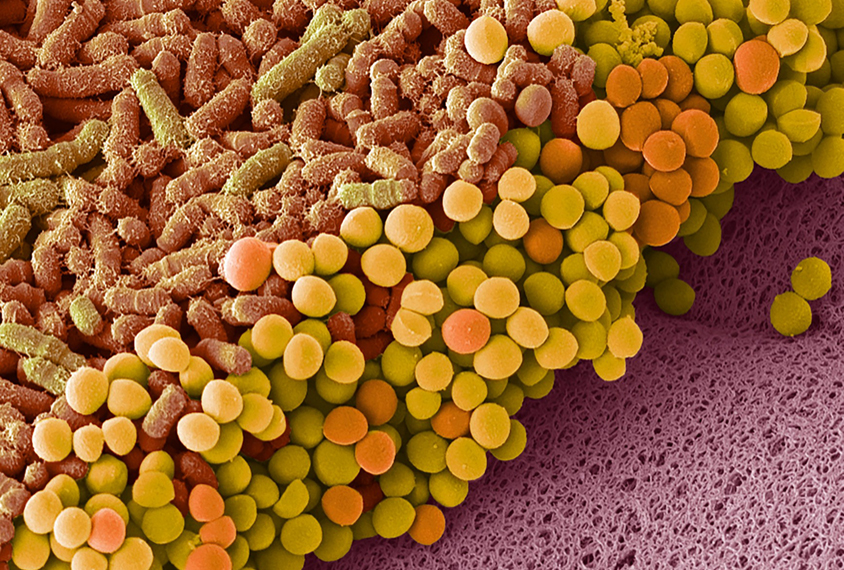
Gut microbes shape social behavior in autism mouse model
Treating mice missing the autism-linked gene CNTNAP2 with a strain of gut bacteria makes them more social but no less hyperactive.
Explore more from The Transmitter
Mitochondrial ‘landscape’ shifts across human brain
Evolutionarily newer regions sport mitochondria with a higher capacity for energy production than older regions, according to the first detailed map of the organelles in a tissue slice, adding to mounting evidence that the brain features a metabolic gradient.

Mitochondrial ‘landscape’ shifts across human brain
Evolutionarily newer regions sport mitochondria with a higher capacity for energy production than older regions, according to the first detailed map of the organelles in a tissue slice, adding to mounting evidence that the brain features a metabolic gradient.
Expediting clinical trials for profound autism: Q&A with Matthew State
Aligning Research to Impact Autism, a new initiative funded by the Sergey Brin Family Foundation, wants to bring basic science discoveries to the clinic faster.

Expediting clinical trials for profound autism: Q&A with Matthew State
Aligning Research to Impact Autism, a new initiative funded by the Sergey Brin Family Foundation, wants to bring basic science discoveries to the clinic faster.
This paper changed my life: Shane Liddelow on two papers that upended astrocyte research
A game-changing cell culture method developed in Ben Barres’ lab completely transformed the way we study astrocytes and helped me build a career studying their reactive substates.

This paper changed my life: Shane Liddelow on two papers that upended astrocyte research
A game-changing cell culture method developed in Ben Barres’ lab completely transformed the way we study astrocytes and helped me build a career studying their reactive substates.